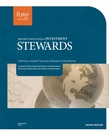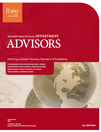|
Objective-based asset allocation (OBAA) funds were born in the ashes of the GFC and target an absolute return. Their appeal is that they offer investors a one-stop solution and better potential management of downside risks through dynamic asset allocation and risk protection overlays. However, our analysis shows most have under-performed conventional balanced funds since inception, and they have not, in general, meaningfully used the asset allocation ranges permitted by their investment policies. They are also yet to be truly tested in a bearish market environment. Our findings show that the actual investments made differ markedly between OBAA funds. This highlights that the need for comprehensive due diligence by Advisers, Trustees and other fiduciaries is just as material for OBAA funds as conventional funds. Finally we argue that the ongoing monitoring requirement is even higher with OBAA funds because the asset allocation and fund selection decisions they make still remain the responsibility of the fiduciary – they cannot be delegated away.
Click here to download paper Staff from Fi360 Pacific were involved in a research program run by the New Zealand Institute of Pacific Research to develop an understanding of Sovereign funds in the Pacific and opportunities to lift performances. Pacific Island funds are often the largest single investor in their host nations, and they are a key sources of wealth and potential mechanism to help Pacific Islands achieve greater self-reliance. The 3 phases of this research were:
A key finding of this research was that for many funds there needs to be more clarity on their economic purpose so that clear investment strategies can be developed to best meet their purpose. Opportunities to improve investment governance were also identified, including through training of Trustees and regular scheduled reviews of policies and providers. Papers for this research are available here: Socially responsible investing (SRI) (also called sustainable, responsible, impact investing) is growing in markets around the world. It offers investors the opportunity to ensure that their investments align with their mission and values and is part of a wider movement to make the global financial system more effective in mobilising capital towards an environmentally sustainable and socially inclusive economy, that is, sustainable development. As SRI is becoming better understood and more widely accepted, the historic barriers to SRI, such as the belief that it is inconsistent with the fiduciary obligation of loyalty to beneficiaries because it has a negative impact on returns, are being challenged and arguably dismantled.
This paper aims to help those boards charged with overseeing investments for the benefit of others (i.e. fiduciary boards) in the Pacific sovereign wealth fund, philanthropic, charities and Māori sectors (for the purpose of this paper, Investment Stewards) understand what SRI is and how it fits in with their fiduciary obligations and investment governance practices. Click here to download paper Financial service providers including brokers, advisers, banks and investment managers have had to re-think business models, re-train, even decide whether they want to continue. They are now wrapped in new regulation, designed to protect investors and inform. They lose their ticket to attend the game if they fail to meet requirements. Providers might claim, “If we meet compliance, surely any client should be satisfied. What other scrutiny could possibly be necessary?” Actually – quite a lot! Download the full article below:
 Updated practices and new layout are provided in the recent release of an edition suitable for New Zealand, Australia and Asia Pacific stewards or for use by service providers working with such entities. Copies are available to purchase via the Store or please contact us for more information on discounts for multiple copies.  After an extensive review and collaboration with independent industry experts and the AICPA (as technical editors), the new handbook series has been released for the US. The practices themselves have not fundamentally changed but rather have been regrouped in places and the commentary has been improved. We have commenced work on amended versions suitable for advisers and trustees in New Zealand. Additionally, fi360 Pacific has commenced adaptation for a specialised Australian Superannuation handbook. The revised practices also mean the Accredited Investment Fiduciary and Fiduciary Essentials training courses will be provided with upgraded content. |
||||||
Helping you grow and protect the assets under your care
|
|
|
|
Fi360 Pacific Ltd ©2024. All Rights Reserved
|
|
